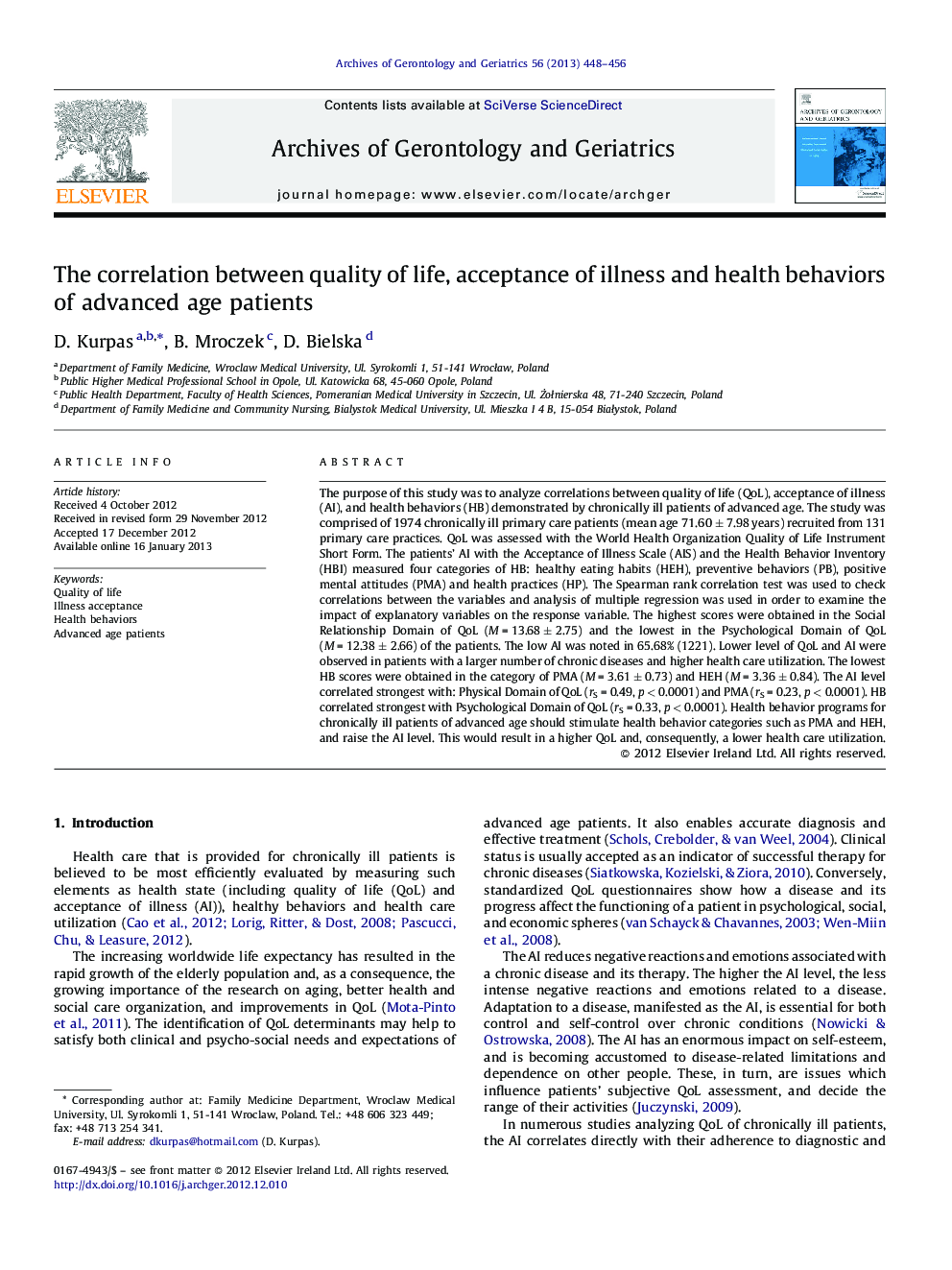| Article ID | Journal | Published Year | Pages | File Type |
|---|---|---|---|---|
| 1903398 | Archives of Gerontology and Geriatrics | 2013 | 9 Pages |
The purpose of this study was to analyze correlations between quality of life (QoL), acceptance of illness (AI), and health behaviors (HB) demonstrated by chronically ill patients of advanced age. The study was comprised of 1974 chronically ill primary care patients (mean age 71.60 ± 7.98 years) recruited from 131 primary care practices. QoL was assessed with the World Health Organization Quality of Life Instrument Short Form. The patients’ AI with the Acceptance of Illness Scale (AIS) and the Health Behavior Inventory (HBI) measured four categories of HB: healthy eating habits (HEH), preventive behaviors (PB), positive mental attitudes (PMA) and health practices (HP). The Spearman rank correlation test was used to check correlations between the variables and analysis of multiple regression was used in order to examine the impact of explanatory variables on the response variable. The highest scores were obtained in the Social Relationship Domain of QoL (M = 13.68 ± 2.75) and the lowest in the Psychological Domain of QoL (M = 12.38 ± 2.66) of the patients. The low AI was noted in 65.68% (1221). Lower level of QoL and AI were observed in patients with a larger number of chronic diseases and higher health care utilization. The lowest HB scores were obtained in the category of PMA (M = 3.61 ± 0.73) and HEH (M = 3.36 ± 0.84). The AI level correlated strongest with: Physical Domain of QoL (rS = 0.49, p < 0.0001) and PMA (rS = 0.23, p < 0.0001). HB correlated strongest with Psychological Domain of QoL (rS = 0.33, p < 0.0001). Health behavior programs for chronically ill patients of advanced age should stimulate health behavior categories such as PMA and HEH, and raise the AI level. This would result in a higher QoL and, consequently, a lower health care utilization.
